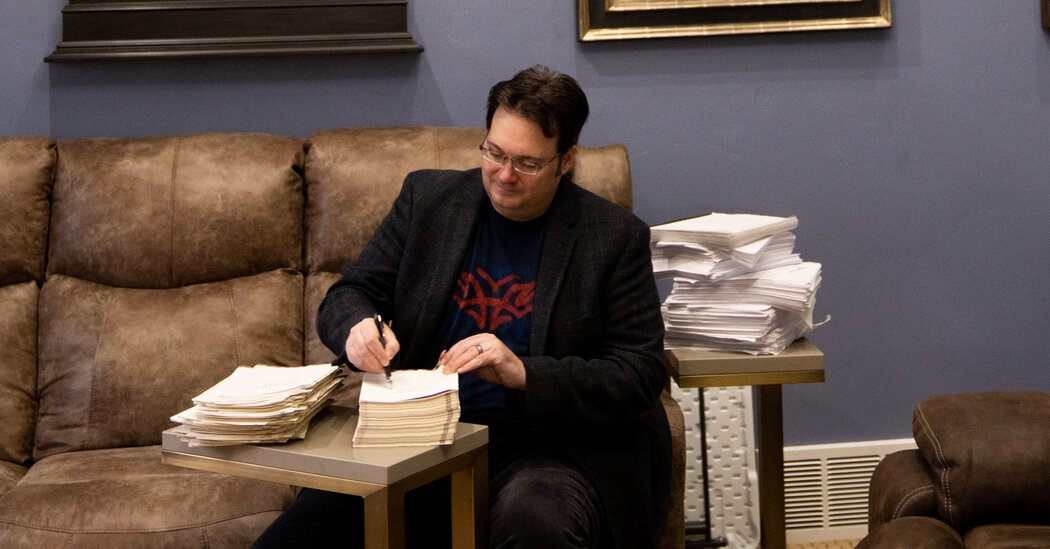
“I am an artist who was raised by an accountant and a businessman,” Sanderson said in a phone interview from his office in American Fork, Utah. “For a lot of authors, this would be a bad idea because there’s a lot of management.”
Sanderson emphasized that he was not leaving traditional publishers, in part because he wants to be sure that bookstores can continue to have his work in stock. He is published by Tor, which is part of Macmillan Publishers, and Delacorte Press, an imprint of Penguin Random House, and he has a book scheduled for publication later this year with each of them.
He also has no plans to use his company to publish other authors, he said. What makes him successful is his ability to appeal directly to his own fans, who may not necessarily want to buy work by somebody else.
One of his goals for this project, Sanderson said, was to experiment. First, he wanted to see what it might look like to poke a little hole in Amazon’s dominance. Amazon sells more than half the printed books in the United States, but it is even more powerful in e-books and audiobooks, which account for 80 percent of Sanderson’s sales, he said.
“If Amazon’s grip on the industry is weakened, that’s good for the publishers — they are very much under Amazon’s thumb right now,” Sanderson said. “I don’t want to present this as ‘Brandon versus Amazon.’ Amazon’s great. But I think that in the long run, Amazon being a monopoly is actually bad for Amazon. If they don’t have competition, they will stop innovating.”
He also wanted to play around with bundling and upselling. Traditional publishers, he said, offer few products and few options. The array of packages on Kickstarter range from $40 for four e-books to $500 for the four books in all formats, plus eight boxes of “swag.”




